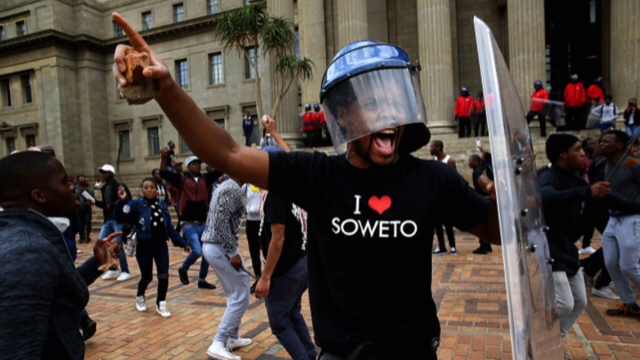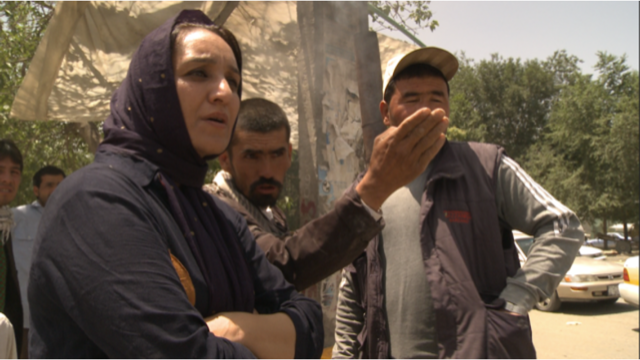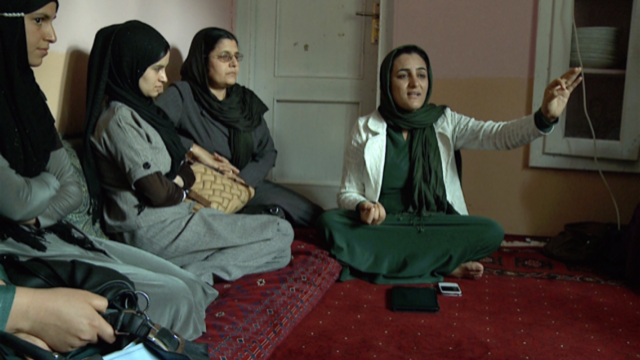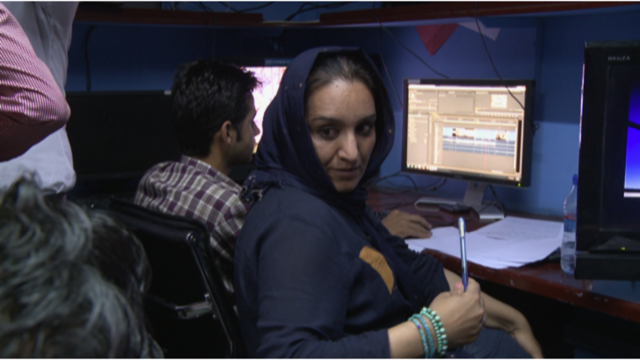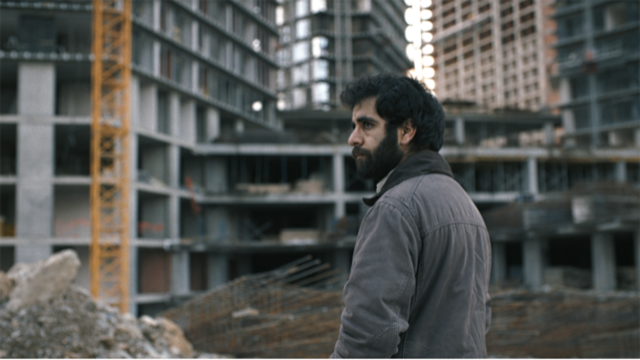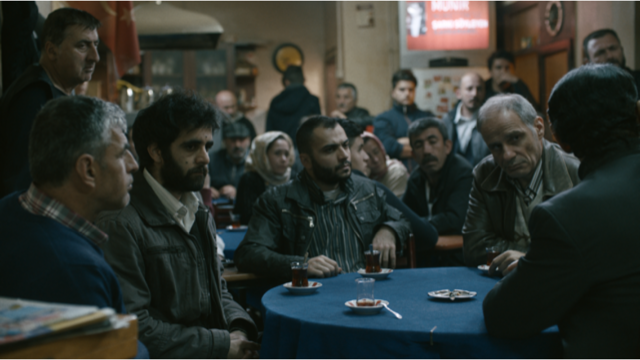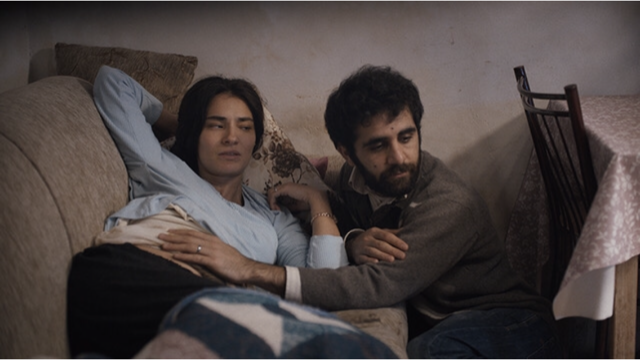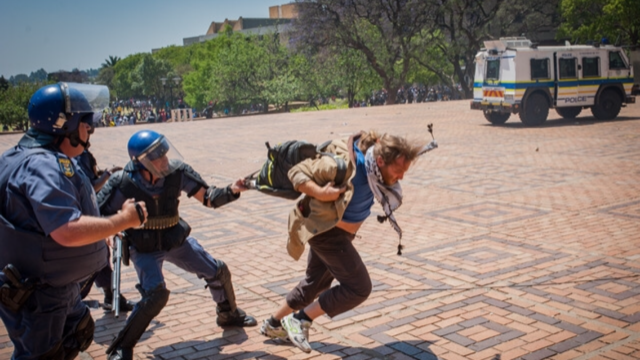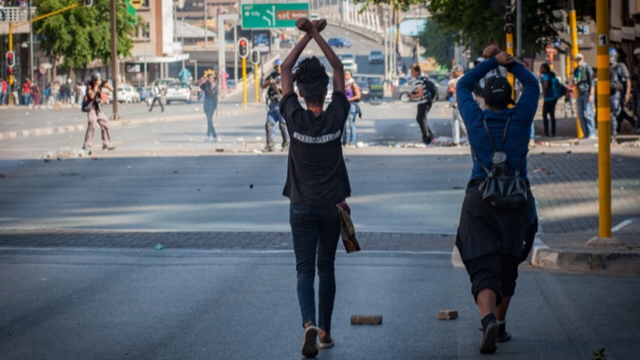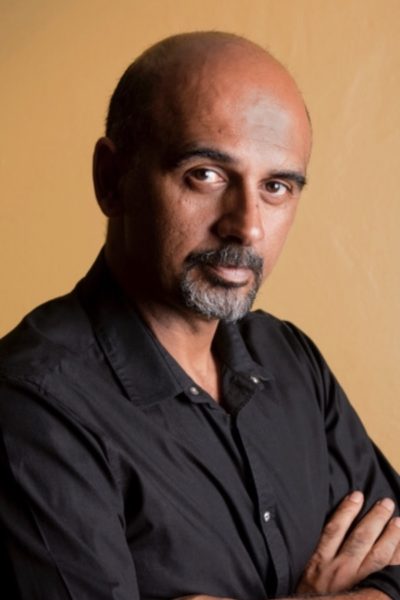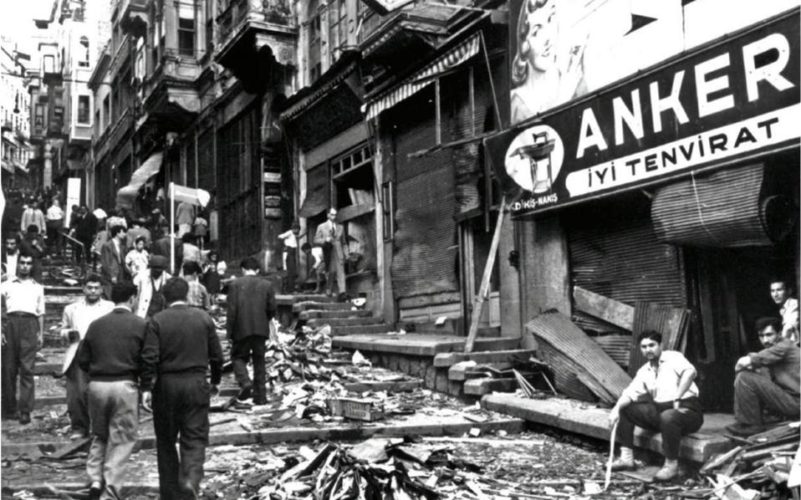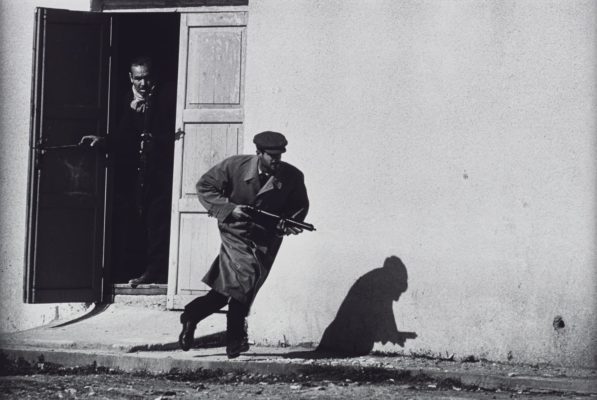Stories from The Front Line
With authoritarian governments very much on the rise throughout the world, the Human Rights Watch Film Festival arrives in London at a crucial moment. Screening in twenty cities around the world, each festival selects films which highlight key human rights issues currently under threat in some part of the world. This year’s festival features films from as far afield as the Palestinian territories, France, Germany and America, covering such diverse themes as intersexuality, forced labour and in the era of #METOO, the prevalence of rape culture among some of America’s high school sporting elite.
Three films in this year’s festival particularly stand out: Sedika Mojadidi’s Facing the Dragon which addresses the thorny issue of the erosion of women’s rights in present day Afghanistan, Saf directed by Ali Vatansever from Turkey, which looks at the rising tensions between Turkey’s underclass and recently arrived Syrian refugees and finally a powerful portrait of student activism in contemporary South Africa, Everything Must Fall directed by Rehad Desai. All three films illustrate the importance of recording stories of resistance in an era marked by the rise of authoritarian regimes.
Sedika Mojadidi’s Facing the Dragon follows the lives of two courageous women, doctor and elected government official Nilofar Ibrahimi in Afghanistan, and Afghani investigative journalist Shakila Ibrahaimkhel. The film charts their daily struggles in a country whose security infrastructure is crumbling by the day, placing the lives of its professional women at risk. We see the enormous costs both women pay for their activism and the difficult choices they face in their attempts to keep their families safe. Neither receives government support, highlighting the contradiction between the government’s declared aspirations in terms of women’s rights and the day to day reality for most women living there. American troops, who arrived in the country in 2001 in the wake of the September 11th attacks, promising to dismantle the oppressive regime of the Taliban, a regime which had been instrumental in driving women from the country’s public sphere, are now preparing to leave with the Taliban very much in control of many parts of the country and the leading player in the country’s current peace talks. Women living there who have benefitted from the occupation feel both bewildered and betrayed and now struggle to see a way forward. Dr Nilofar Ibrahim was left to contest an election in the region she represents with little security. The area is now in danger of falling to the Taliban. Facing the Dragon skilfully highlights how promises made during the years of relative freedom now ring hollow. Many women, particularly those who work in the media as well as high profile political figures, are having to make difficult choices of whether to stay or leave. Despite this the film also shows how women throughout the country have not given up hope that their endeavours can help to create a more just and humane society.
Facing the dragon | Trailer
Saf, a drama directed by Ali Vatansever, looks at the rising tensions between Syrian refugees seeking asylum in Turkey and the country’s own urban poor. This conflict is examined through a dispute between a young and newly married Turkish worker and an injured Syrian refugee. Both hope to work for the same company, in exactly the same post, a company which is in the process of destroying the very neighbourhood in which they both live. Ali Vatansever, the film’s director, at the screening’s Q and A spoke passionately about intersectionality with regard to the themes explored in the movie. Vatansever states, “Friends asked me why did I not simply make a film about the migrant crisis or a film about urbanization but for me these themes are all connected and I feel very strongly that I did not want to make a film which took a side. I wanted to show how both men have dignity. Perhaps what is the problem is that none of us actually own the land. I think so many of our problems can be traced to this mistaken idea. Once we realise this, then we would be much more willing to share.”
The final film of this trio is an extraordinary look at the recent South African student protests, where students marched and shut down several universities over a government-proposed eight percent increase in university tuition fees. Students, mainly from middle class families, who were already struggling financially, finally decided that they had enough and called for a general strike. Made by veteran documentary filmmaker Rehad Desai the film charts how this fledgling student movement ended up being pitted against a senior anti-apartheid activist in the shape of one of the university’s vice chancellors, Adam Habib. Habib has a long history of political activism and yet during the course of the film, he appears to be more concerned with the university’s academic reputation than the future of the students. When negotiations break down between the university and the movement’s four young leaders, Habib takes the catastrophic decision of asking a force of 1,000 troops to be stationed on the university’s campus, ironically leading to scenes which would not have been out of place in the heyday of Apartheid. This decision not surprisingly escalates the level of violence, leading to one of the female leaders, who desperately tries to defuse the situation, being shot several times with rubber bullets. Everything Must Fall also points out that for many poorer South Africans the discussion over higher tution fees is irrelevant, since for them, higher education is simply out of reach, thus highlighting the fact that as the old divide of race in South Africa starts to fade, it is being replaced by a new one, that of growing economic disparity.
These three films taken together tell stories which desperately need to be told, stories which highlight the work of local activists, who wherever they may live in the world today, continue to fight for equal and just societies.
form-idea.com London, April 8th 2019.
